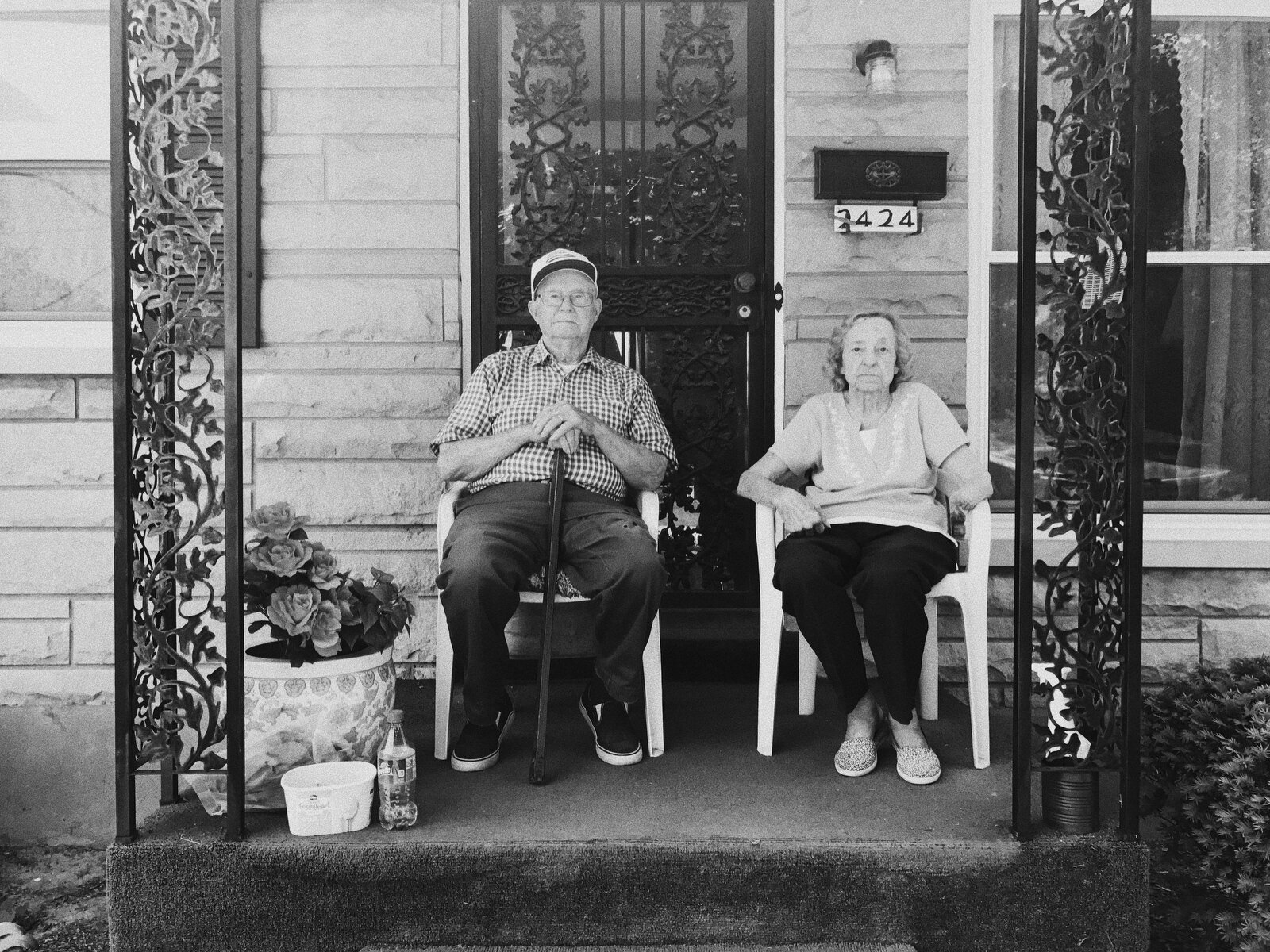
Here. (And Now.)
Scotty Perry
In November, 2018, I received a call that my grandmother’s health was in decline; my grandfather, who had progressive dementia, was unable to take care of her after 72 years of marriage. After living with them as a child and sporadically throughout my younger years as they cared for me, it was without hesitation that it was my turn to care for them, so I moved in. For 16 hours a day I was there when they woke up, cooked them meals, and navigated their medical and physical needs, all while documenting every moment. A lot of people would consider photographing the slow demise of my grandparents taboo, but for me it was a way to pre-grieve what I knew would happen while they were in my care.
I have experienced a sudden type of death in an ample amount of my work as a photojournalist but this was different; I had time to document and then process what I was witnessing real time. In many ways it was therapeutic and allowed my mind to be busy during the stress of being a caregiver. I can recall telling people that I was there for nine months, but only recently have I looked back and realized that it was really five to six. Between the anguish of their passing and me documenting it along the way, it truly slowed down time for me. This slow death offered me a creative outlet that I have always leveraged when faced with hard times.
I sat with these photos for a year and a half, often looking at them and remembering the moments, recalling the atmosphere, laughing at some of their small town vernacular and quips; like many grandparents from the south, Papaw’s use of the term ‘over yonder’ could mean in the other room or refer to another state. Sometimes Mamaw would say she had to do a ‘second job’ when she had to use the restroom; I still laugh about that one all the time. I knew their story had a bigger meaning than sitting on a hard drive; if they meant so much to me, surely someone else could connect with them. I was reluctant but ultimately decided it had to be a book. Who would buy the book? Why would anyone be interested in their story? They are extremely personal photos after all. It didn’t matter; if I could sell 10-15 copies to family and friends who were close to the story, by proxy or by blood, I’d be happy.
After launching pre-orders in November of 2020 the book quickly sold out. 100 copies sent to 25 states and five countries. Complete strangers and friends. I have received dozens of messages from people who have had similar experiences, from doctors and clinicians in the neurological community, and by doing so have been able to connect with a whole community of people who know what caring for aging and elderly family is like. This community knows the routine and the grief that comes along with being present for someone’s final moments. The story, this book of my Mamaw and Papaw, has opened up doors for me, and it’s impossible to avoid that even after their death they are providing for me like they did when I was a kid.
There is a second round of pre-orders available now, a speaking event and a future gallery exhibition in 2021. If I have learned anything from this experience it's to be vulnerable, put yourself out there, someone else needs to hear what you have to say even when you feel alone. Failure is free. Go for it.
http://scottyperry.co/here-book/order
Scotty Perry is a photographer based in Louisville, KY whose main focus is social issues and societal norms. A self-certified hip-hop head who somehow has found the time to keep Juvenile on his top 100 Spotify playlist every year, you can find his work published on Bloomberg, Wall Street Journal, and other news outlets. To see more of his work and purchase his book, Here, visit his website (www.scottyperry.com) or keep up with him on Instagram @scttyprry.



















